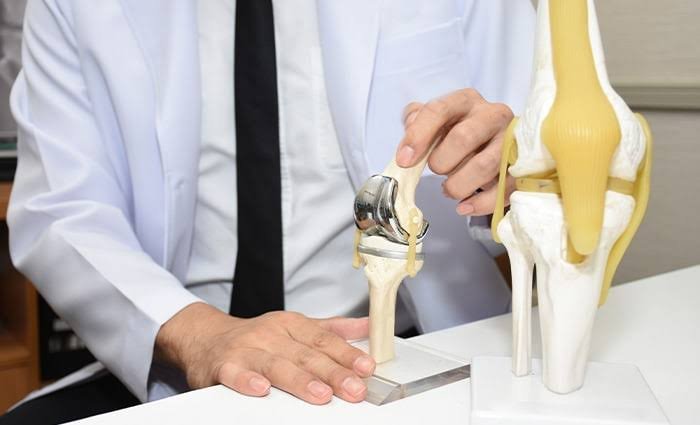
Joint replacement surgery is often performed only when other treatments that comprise medication and physical therapy have not helped the patient to ascertain relief from the joint pain. It is considered as the last line treatment. The surgery is deemed highly effective in providing relief from joint pain, correcting a deformity and assisting the patient to regain proper mobility in joints, physical ability and quality of life.
The joint replacement surgery eliminates impaired or diseased part of the joint and replaces it with the artificial part or orthopedic prosthesis.
Joint Replacement Procedure
Surgeon removes the abnormal bone and lining structures of the joint, and in place of that, new artificial parts are inserted through surgery. The artificial parts which are introduced in place of the impaired parts are made up of special metal or plastic or special kinds of the carbon-coated implant material. When the new artificial parts are fixed and aligned in the places, it allows the joint to move and work effectively like again with little or no pain.
Complication may occur but most of them can be treated successfully. Consult the doctor if you feel any kind of pain or discomfort after surgery. Arthritis is more than just wear and tear or an old person’s disease. It simply means Inflammation of one or more joints, causing pain and stiffness that can worsen with age. The term is used to describe around 200 conditions that affect joints, the tissues that surround the joint, and other connective tissue. The most common form of arthritis is osteoarthritis. Other common rheumatic conditions related to arthritis include gout, rheumatoid arthritis (RA). Osteoarthritis is a progressive condition that slowly damages the cartilage surrounding the ends of bones and is common in large joint like knee, hip joint Rheumatoid arthritis is a disease that damages the lining surrounding our joints while also destroying our bones, tissue, and joints over time. RA commonly involve small joint